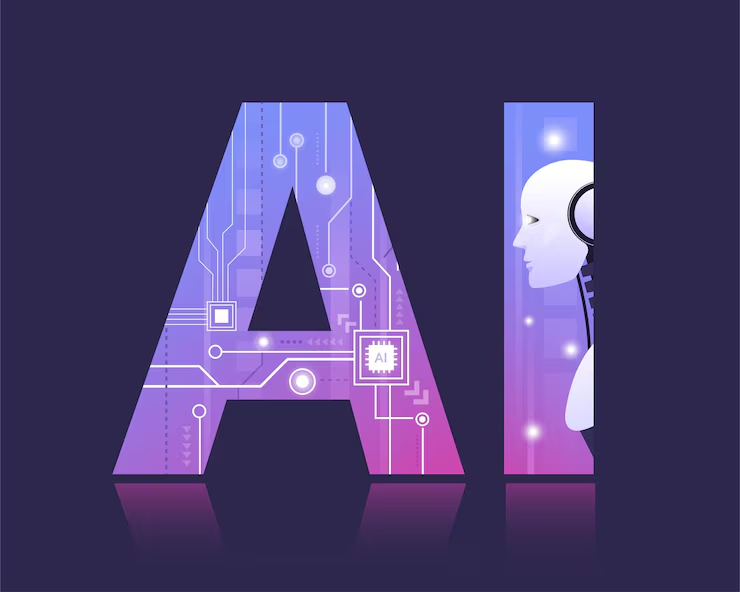AI in Healthcare: Revolutionizing Diagnosis and Treatment
AI in Healthcare: Revolutionizing Diagnosis and Treatment
AI in Healthcare: Revolutionizing Diagnosis and Treatment
Artificial Intelligence (AI) is rapidly transforming healthcare by enhancing how we diagnose and treat diseases. This technological revolution is driving significant improvements in patient care through predictive diagnostics, personalized treatment plans, enhanced medical imaging, accelerated drug discovery, and remote patient monitoring.

Predictive Diagnostics
AI algorithms can analyze vast amounts of medical data to predict disease outbreaks and patient outcomes. For instance, Google’s DeepMind has developed AI models that predict acute kidney injury 48 hours before it occurs. By identifying patterns and trends in patient data, AI helps in early diagnosis and timely intervention, which improves survival rates and reduces healthcare costs.
Moreover, AI is being used to identify early signs of diseases such as diabetes, cardiovascular conditions, and certain cancers by analyzing patient data and recognizing patterns that might be overlooked by traditional diagnostic methods. This proactive approach can lead to more timely interventions and better patient outcomes.
Personalized Treatment Plans
AI enables the creation of personalized treatment plans by analyzing a patient’s genetic makeup, lifestyle, and medical history. This ensures that treatments are tailored to individual needs, increasing their effectiveness. For example, IBM’s Watson for Oncology provides oncologists with evidence-based treatment options based on a patient’s unique profile.
Personalized medicine is revolutionizing how we treat chronic diseases. By understanding the unique genetic and molecular profile of a patient, AI can recommend the most effective therapies, minimize side effects, and even suggest lifestyle changes that can improve the patient’s quality of life. This approach moves away from the “one size fits all” mentality, ensuring that each patient receives care that is best suited to their specific needs.
Enhancing Medical Imaging
AI is revolutionizing medical imaging by providing faster and more accurate diagnoses. AI-powered tools can detect anomalies in X-rays, MRIs, and CT scans that might be missed by the human eye. Companies like Zebra Medical Vision are leading this charge, offering AI solutions that enhance radiologists’ capabilities.
The integration of AI in medical imaging not only improves diagnostic accuracy but also significantly speeds up the process. AI algorithms can quickly analyze large volumes of imaging data, reducing the time needed for diagnosis and allowing for quicker treatment initiation. This is particularly crucial in emergency settings where time is of the essence.
AI in Drug Discovery
AI accelerates the drug discovery process by analyzing biological data to identify potential drug candidates. This reduces the time and cost associated with bringing new drugs to market. Atomwise uses AI to predict which molecules will be effective against diseases, significantly speeding up the research phase.
The traditional drug discovery process is often lengthy and expensive. AI streamlines this by quickly sifting through vast datasets to identify promising drug candidates, predict their effectiveness, and optimize their chemical structures. This not only accelerates the timeline from discovery to market but also increases the likelihood of finding successful treatments for complex diseases.
Remote Patient Monitoring
AI-driven wearable devices and apps enable continuous monitoring of patients with chronic conditions. These tools collect and analyze real-time data, alerting healthcare providers to potential issues before they become critical. Fitbit’s partnership with the National Institutes of Health (NIH) exemplifies how AI can enhance remote patient care.
Remote patient monitoring is particularly beneficial for managing chronic diseases such as diabetes, heart disease, and respiratory conditions. By continuously tracking vital signs and other health metrics, AI can detect early warning signs of complications and prompt timely interventions. This proactive approach not only improves patient outcomes but also reduces hospital readmissions and healthcare costs.
AI in Mental Health
AI is also making strides in the field of mental health. AI-powered chatbots and virtual therapists provide accessible mental health support, offering interventions based on cognitive behavioral therapy and other evidence-based practices. These tools can help identify early signs of mental health issues, provide immediate support, and guide patients toward professional help if needed.
Improving Healthcare Operations
Beyond direct patient care, AI optimizes various healthcare operations. It streamlines administrative tasks, manages patient flow, and optimizes resource allocation in hospitals. By analyzing data on patient admissions, discharges, and treatment outcomes, AI can help healthcare facilities operate more efficiently and provide better care.
External Links for Further Reading:
- Google’s DeepMind Predictive AI
- IBM Watson for Oncology
- Zebra Medical Vision
- Atomwise in Drug Discovery
- Fitbit and NIH Collaboration
By integrating AI into healthcare, we are witnessing a significant transformation in how diseases are diagnosed and treated. These advancements not only improve patient outcomes but also enhance the efficiency and effectiveness of healthcare delivery. As AI continues to evolve, its potential to revolutionize healthcare becomes increasingly evident.
